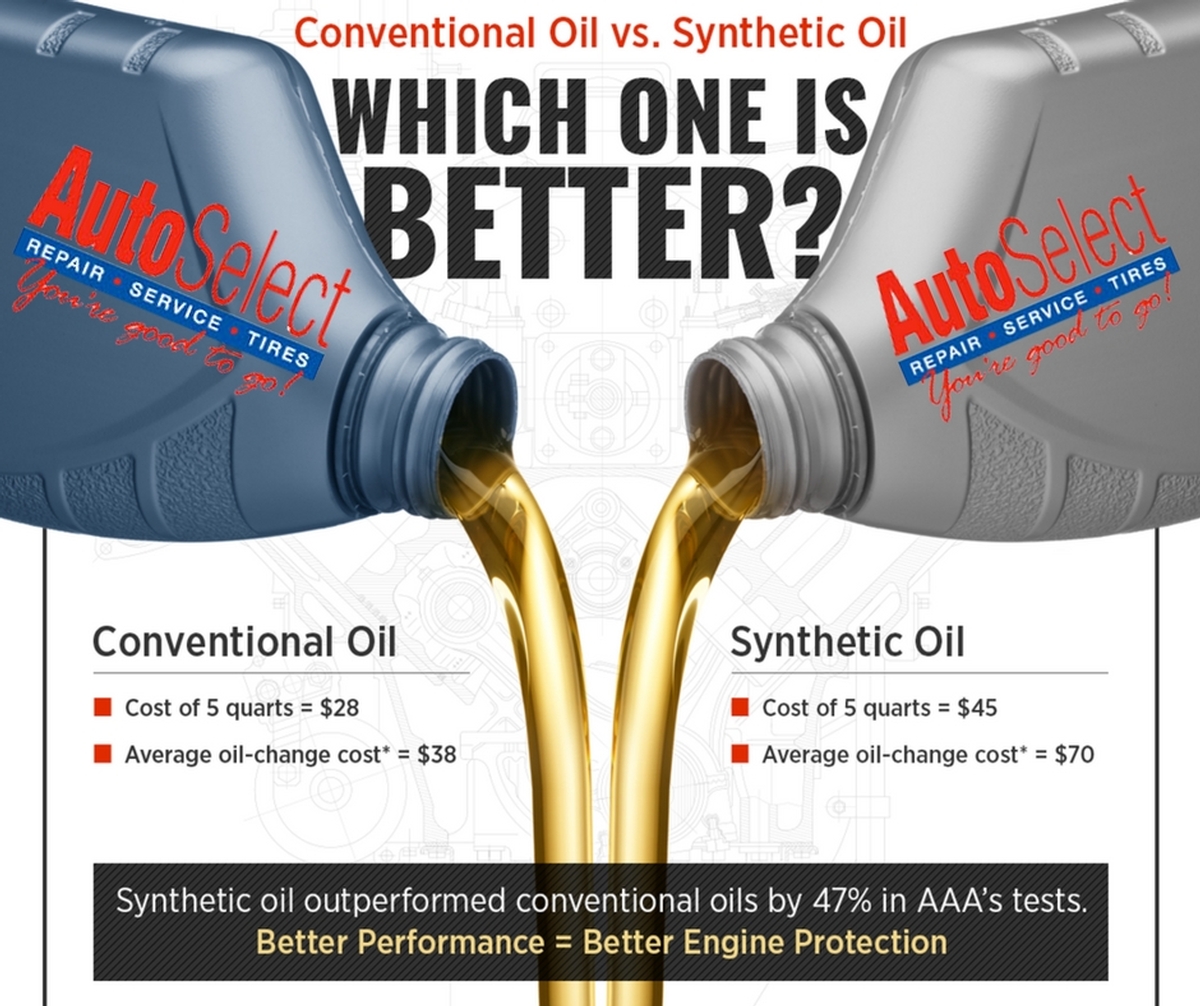
Conventional oil most motorists know that synthetic oil emerges victorious. Synthetic oil is by far better for performance.

Conventional oil could never stand up to synthetic when it comes to longevity and ability to handle extreme high temperatures without breaking down.
Regular oil versus synthetic oil. Synthetic and Conventional motor oil will both protect your engine but synthetic oil will do it as much as 47 better and resist breakdown under extreme temperature conditions. As with most maintenance best practice is to follow the advice in your owners manual. Basically the key difference between synthetic and conventional oils are their compositions.
Conventional oil uses crude oil as its base while synthetic oil uses other products and is engineered. Costs More Synthetic and its special filter if specified by the manufacturer will usually cost about twice as much as conventional oil and a normal oil filter. On average an oil change with conventional oil might cost 25 to 55 and if using synthetic the price will be 45 to 70.
As the name suggests synthetic oil is produced through artificial means. It has a higher purity level than regular oil because it is processed through chemical synthesis a process that combines different organic compounds to improve its efficiency levels. Synthetic Oil has many pros over conventional oil.
Helps more with resisting oil breakdown which is more efficient than the conventional option. In this article you will learn more about the different pros and cons of the two different types of oil. Synthetic oil benefits When it comes to engine oil the man-made oil is better because it reduces environmental pollution and ensures the long life of the engine than the regular oils.
Also unlike the silk and polythene analogy synthetic oil is almost 3 times costlier than regular oil. Weve explained that synthetic oil is far more refined than conventional oil. Second the way they run in your car is worlds apart.
Used motor oil shows a lot thicker and sludgy in conventional oil vs. Synthetic oil given the same amount of wear. Synthetic oil is by far better for performance.
Actually it has many of the same benefits as full synthetic. Your engines longevity will be increased more if using synthetic blend oil instead of regular conventional oil. Synthetic blend also does a better job of lubricating and cooling the hot components of your engine.
Therefore if you want an oil that is a step up from conventional oil and more affordable than full synthetic then choose the synthetic blend. In reality both synthetic and conventional are derived from the same crude oil. They just go through different processes to become what they are with synthetic receiving some extra additives along the way.
Conventional oil is a filtered derivative of crude. This makes it closer to the original substance and cheaper to manufacture. First off synthetic oil is better than conventional oil when it comes to its form and function.
Conventional oil could never stand up to synthetic when it comes to longevity and ability to handle extreme high temperatures without breaking down. But all this advanced technology doesnt come cheap. In the battle of synthetic vs.
Conventional oil most motorists know that synthetic oil emerges victorious. Its widely understood that synthetic oil provides improved wear protection engine cleanliness and fuel efficiency among other benefits. Synthetic oil also lasts longer offering increased convenience and cost savings.
Enter synthetic oil whose base oil designed by engineers to include molecules that are much more uniform compared to those in conventional oil. That molecular uniformity produces a significantly more stable oil. Synthetic oil flows easier at cold temperatures and thicker at higher onereally its a win-win.
In general synthetic oil outperforms regular oil on all counts. Synthetic oil works better in extreme temperatures from below freezing to above 100 F. Regular oil is highly reactive to temperatures.
In essence synthetic oil filters are far better than regular or conventional oil filters in terms of working capacity and decontamination. Moreover synthetic oil filters are best in the refinement process over molecular size and purity. Because of that engine performance enhances and lowers the friction rate.
Synthetic vs Regular oil When we talk about synthetic and regular oil it refers to the oil used as motor oil. Regular or conventional oil and synthetic oil are both lubricants which are used for automobiles moving engine parts. Oils are also used for cleaning and protecting the moving engine parts.
The cost of a synthetic oil change is 2 to 3 times higher than for regular oil but can remain in the engine for a longer period. Usual oil changes are generally every 5000 km while incorporated ointment changes can be up to 10000 km. Much of the oil change recurrence will offset the cost difference.
Synthetic oil is less likely to form this troublesome sludge. Though synthetics generally hold up better for more miles regular oil changes remain important and you shouldnt wait beyond the time.